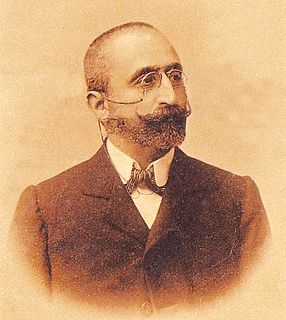A Quote by Carolyn Porco
Those of us engaged in the practice of science come to feel a certain reverence for it, engendered by its demonstrable power to dissect, clarify, and explain what previously was unexplainable, and thus to improve the human condition.
Related Quotes
By trying to give an artistic approach through my book I stepped unwillingly into other fields. Like a dentist being asked about a throat ache on a much more relevant scale, I was caught in trying to explain what was unexplainable for me. In the end, trying to explain why it was unexplainable finally led to a huge general insecurity in dealing with the subject at all.
Nowadays, there are plans to separate the Baltic states from the common power system of the former Soviet Union and to integrate them into the European system. What does it mean for us in practice? In practice, it means that a number of zones will emerge between several regions of the Russian Federation, where we will have no power transmission lines, since previously we used to have a loop transition through the Baltic countries.
The science of anti-Semitism finally comes to explain this phenomenon, enlightening further the consciousness of people, fully satisfying their instinct and its violent eruptions thus legitimized by revealing their cause - the parasitism of the Jews. Thus it gives us the formula of the scientific solution for the problem of Judaism, which in order to realize we have only to apply.
I feel very strongly that history is about everything. It isn't just about politics or the military or social issues. If art, music, engineering, science, medicine, finance, the world of architecture and technology - if those are left out, then you're not getting a full sense of the human condition. History is human and we human beings are involved in all kinds of things and that's part of our humanity.
While dwelling with pleasing satisfaction upon the superior excellence of our political institutions, let us not be unmindful that liberty is power; that the nation blessed with the largest portion of liberty must in proportion to its numbers be the most powerful nation upon earth, and that the tenure of power by man is, in the moral purposes of his Creator, upon condition that it shall be exercised to ends of beneficence, to improve the condition of himself and his fellow men.
We have imagined ourselves a special creation, set apart from other humans. In the last twentieth century, we see that our povertyis as absolute as that of the poorest nations. We have attempted to deny the human condition in our quest for power after power. It would be well for us to rejoin the human race, to accept our essential poverty as a gift, and to share our material wealth with those in need.
People knew there were two ways of coming at truth. One was science, or what the Greeks called Logos, reason, logic. And that was essential that the discourse of science or logic related directed to the external world. The other was mythos, what the Greeks called myth, which didn't mean a fantasy story, but it was a narrative associated with ritual and ethical practice but it helped us to address problems for which there were no easy answers, like mortality, cruelty, the sorrow that overtakes us all that's part of the human condition. And these two were not in opposition, we needed both.
The most powerful political moments for me come when I feel like my actions are aligned with a certain truth. I can feel it. When I'm talking to a group and I'm saying something truthful, I can feel a power that comes out of those statements that is different than when I'm just being glib or clever.
I believe in rendering to science the things that belong to science. I have no problem with evolution or discussions of the age of the Earth, for I don't believe that we come anywhere near comprehending the mind of God or the workings of the universe. Science can explain a lot, but it cannot give us faith, and I think we need both.




































